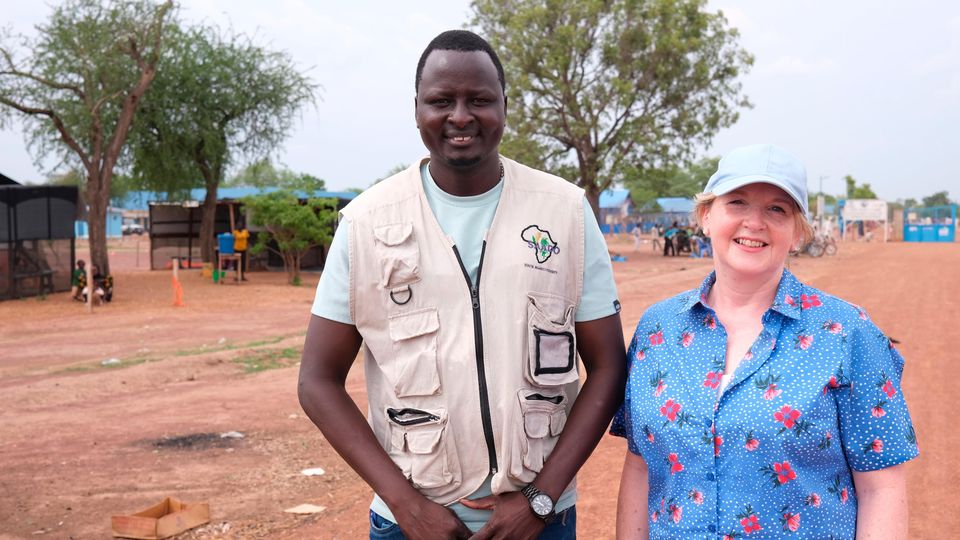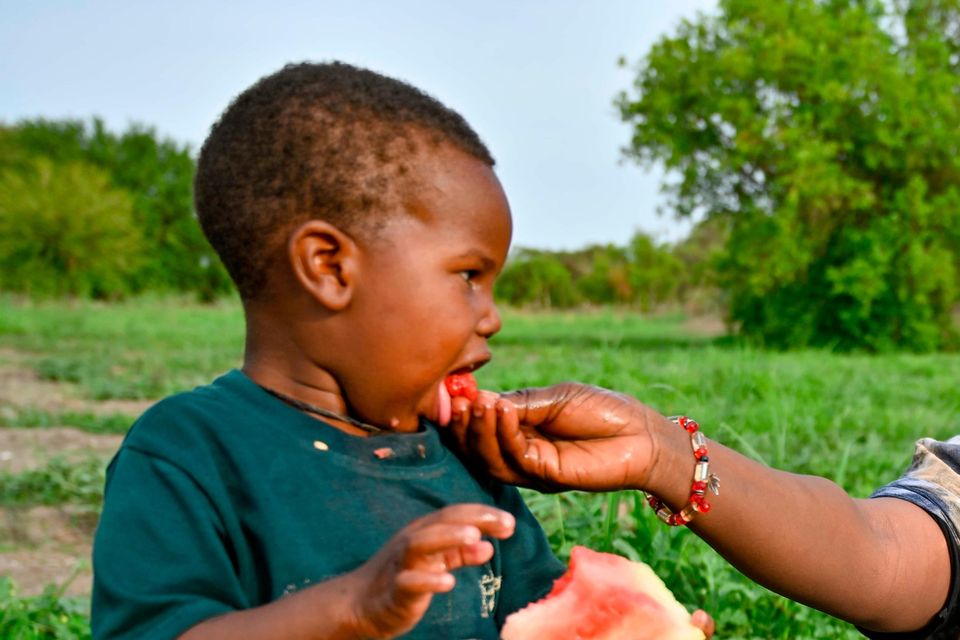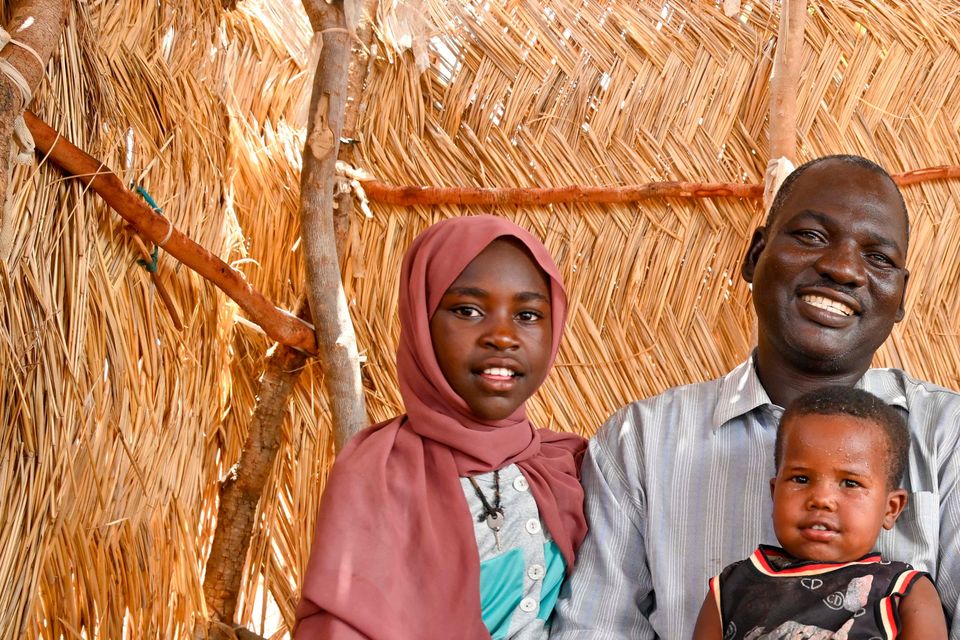I first visited South Sudan in 2017 while the civil war was still raging. By then, hundreds of thousands of people had been killed and millions had fled north to Sudan or to other neighbouring countries.
On my latest visit this summer, I saw how the tables had turned, but not for the better. Despite being one of the poorest countries in the world, South Sudan has now opened its borders to those fleeing war in Sudan.
Around 2.2 million have fled Sudan to neighbouring countries since April 2023, including over 860,000 to South Sudan.
In Wedweil refugee camp in the north-west of the country, close to the border with Sudan, I met with some of these refugee families.
Their stories of escaping war were harrowing. I heard of relatives and neighbours killed and homes bombed. Many have lost contact with family members that they had no choice but to leave behind.
Elijah Manyok, CEO of SAADO, with Rosamond Bennett, Chief Executive of Christian Aid Ireland, at Wedweil refugee camp in South Sudan. Credit: Katie Cox
Over 13,000 Sudanese refugees are living in wooden shelters in Wedweil refugee camp. It was in the camp that I met Amani from Nyala, the capital of South Darfur in Sudan. The 35-year-old married mum of five experienced first-hand the terror war. She said her family home was surrounded by gunfire and that four of her neighbours’ children were killed in separate bombings of their homes. She told me that it wasn’t long before the conflict quite literally came knocking at her door.
“The Rapid Support Forces came to our house looking for my husband as he was former military and they wanted to take him away. That was very frightening,” Amani said.
“At that time, my husband was out. I called him to tell him that these people are waiting to take you away so don’t come home,” she added.
These were the defining moments that made Amani realise it was too dangerous to remain in Sudan. She packed up what little belongings she could and fled for South Sudan with her husband and two of their kids. The journey took seven days and they faced danger throughout.
“There were robberies happening all along the road. We came in a convoy of four trucks. The robbers demanded money from each truck in order to proceed,” Amani said.
“The money that I had from home had been taken by the robbers. I only had a little bit left when we reached here,” she added.
Amani feeding watermelon to her three-year-old son Badu which she has grown on the plot she has rented using the profit from her restaurant. Credit: David Macharia, Christian Aid
Amani’s decision to flee Nyala was heartbreaking, not only because she had to leave her home and all she knew behind, but also because it was too dangerous to bring all of her children with her.
“Three of my children were with their grandmother when there was heavy shooting, so they weren’t able come back to me when I was leaving,” Amani recalled.
“When I came here, I couldn’t eat anything because I was thinking about my children and how they would survive. I had no telephone to reach them to know how they were doing,” she said.
With no way of her children knowing where she was, and with her husband still under threat, Amani made the brave decision to return alone to Sudan to get her children out of the country. Thankfully, they were able to reunite and have since lived together in Wedweil.
Amani was among thousands of Sudanese refugees in Wedweil who received cash support from Christian Aid’s local partner Smile Again Africa Development Organisation (SAADO). This cash support, funded by Irish Aid and the Scottish government, helped refugees to buy food and other essentials. In some cases, the money even allowed refugees like Amani to set up a small business to earn an income.
“In Sudan, I worked in a good restaurant. When I first came here, the food that was distributed was so little. It was not enough for me to survive. I was thinking about what I could do and then I had the idea of setting up a restaurant,” Amani said.
“When I came from Sudan, I had nothing, only the clothes that I was wearing. Everything that you can see here, all the pots, all the materials, I got because of the support from SAADO,” she added.
Amani with her husband Rashid and three of their children in Wedweil refugee camp. Credit: David Macharia, Christian Aid
Amani told me that with the profits from her restaurant, she has been able to rent a plot of land where she grows onions, watermelon and okra for her family to eat as well as to sell for extra cash. Amani invests the profits she makes from the sale of her crops into her restaurant and vice versa.
“My business is running very well. Around 35-40 customers come every day. I was able to start farming by the river. I take the harvest and sell it in the market and with that money I bought a refrigerator,” Amani said.
While Amani and her family are now safe, she said this doesn’t mean they will forget what they have been through, nor the country they once called home. “The pain of the past has not been forgotten. My little son Badu imitates the sounds of the big guns all the time,” Amani said.
“I hope that there will be peace and we will return back to our country,” she added.
Rosamond Bennett is chief executive of Christian Aid Ireland. Christian Aid Ireland’s Christmas appeal features Amani and other refugees in South Sudan in need of help. To support, visit: https://www.caid.ie/ChristmasAppeal


